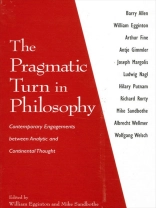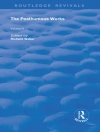The Pragmatic Turn in Philosophy explores how the various discursive strategies of old and new pragmatisms are related, and what their pertinence is to the relationship between pragmatism and philosophy as a whole. The contributors bridge the divide between analytic and continental philosophy through a transcontinental desire to work on common problems in a common philosophical language. Irrespective of which side of the divide one stands on, pragmatic philosophy has gained ascendancy over the traditional concerns of a representationalist epistemology that has determined much of the intellectual and cultural life of modernity. This book details how contemporary philosophy will emerge from this recognition and that, in fact, this emergence is already underway.
Jadual kandungan
Introduction
Mike Sandbothe and William Egginton
1. The Insistence on Futurity: Pragmatism’s Temporal Structure
Ludwig Nagl
2. Philosophy as a Reconstructive Activity: William James on Moral Philosophy
Hilary Putnam
3. Pragmatic Aspects of Hegel’s Thought
Antje Gimmler
4. The Pragmatic Twist of the Linguistic Turn
Mike Sandbothe
5. The Debate About Truth: Pragmatism without Regulative Ideas
Albrecht Wellmer
6. The Viewpoint of No One in Particular
Arthur Fine
7. A Pragmatist View of Contemporary Analytic Philosophy
Richard Rorty
8. What Knowledge? What Hope? What New Pragmatism?
Barry Allen
9. Richard Rorty: Philosophy Beyond Argument and Truth?
Wolfgang Welsch
10. Keeping Pragmatism Pure: Rorty with Lacan
William Egginton
11. Cartesian Realism and the Revival of Pragmatism
Joseph Margolis
Selected Bibliography
List of Contributors
Index
Mengenai Pengarang
William Egginton is Assistant Professor of Modern Languages and Literatures and Comparative Literature at the University at Buffalo, State University of New York. He is the author of
How the World Became a Stage: Presence, Theatricality, and the Question of Modernity and translated and wrote the introduction to Lisa Block de Behar’s
Borges: The Passion of an Endless Quotation, both published by SUNY Press.
Mike Sandbothe is Professor of Cultural and Media Studies at Friedrich Schiller University at Jena. His most recent book is
The Temporalization of Time: Basic Tendencies in Modern Debate on Time in Philosophy and Science.












